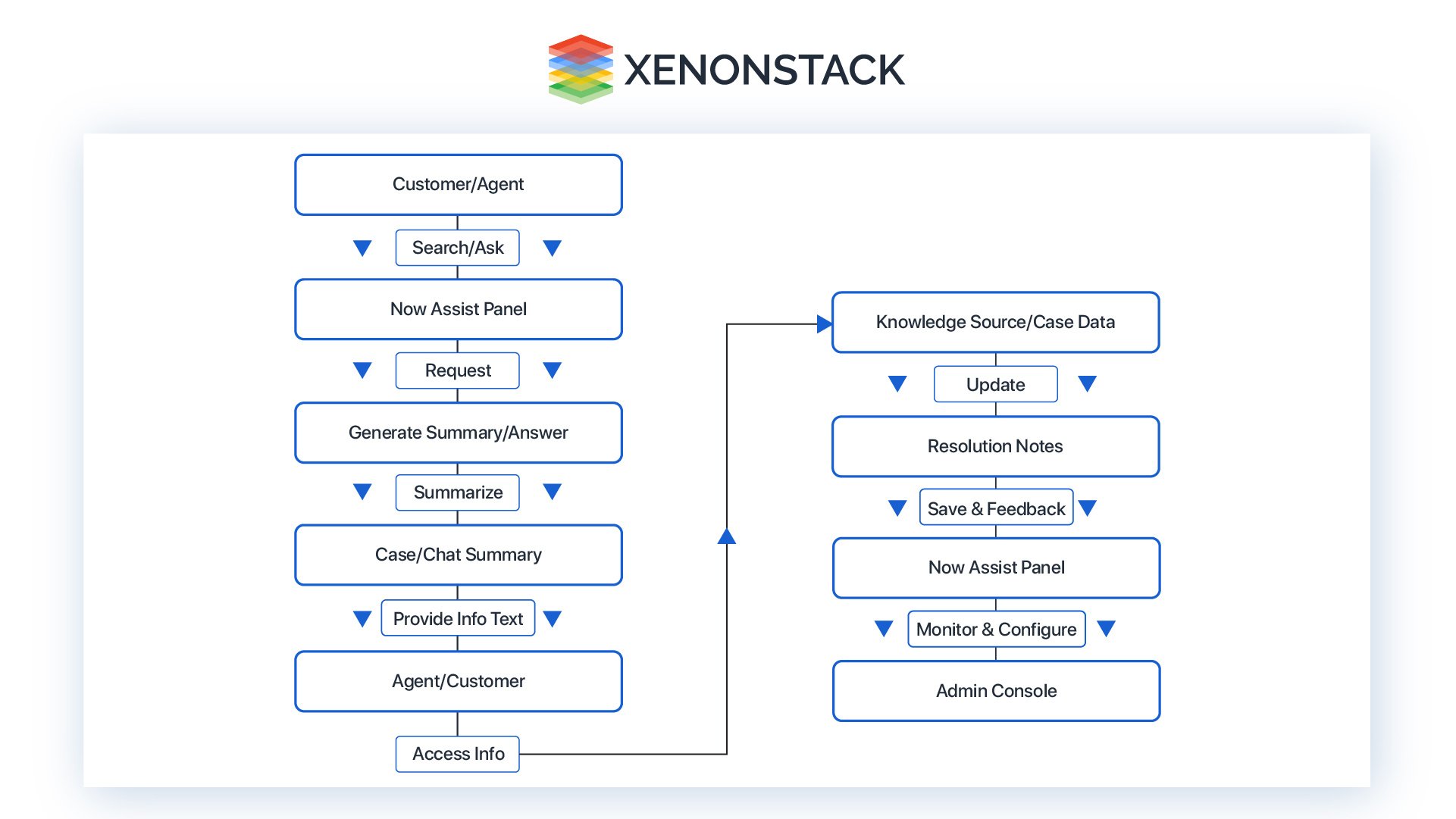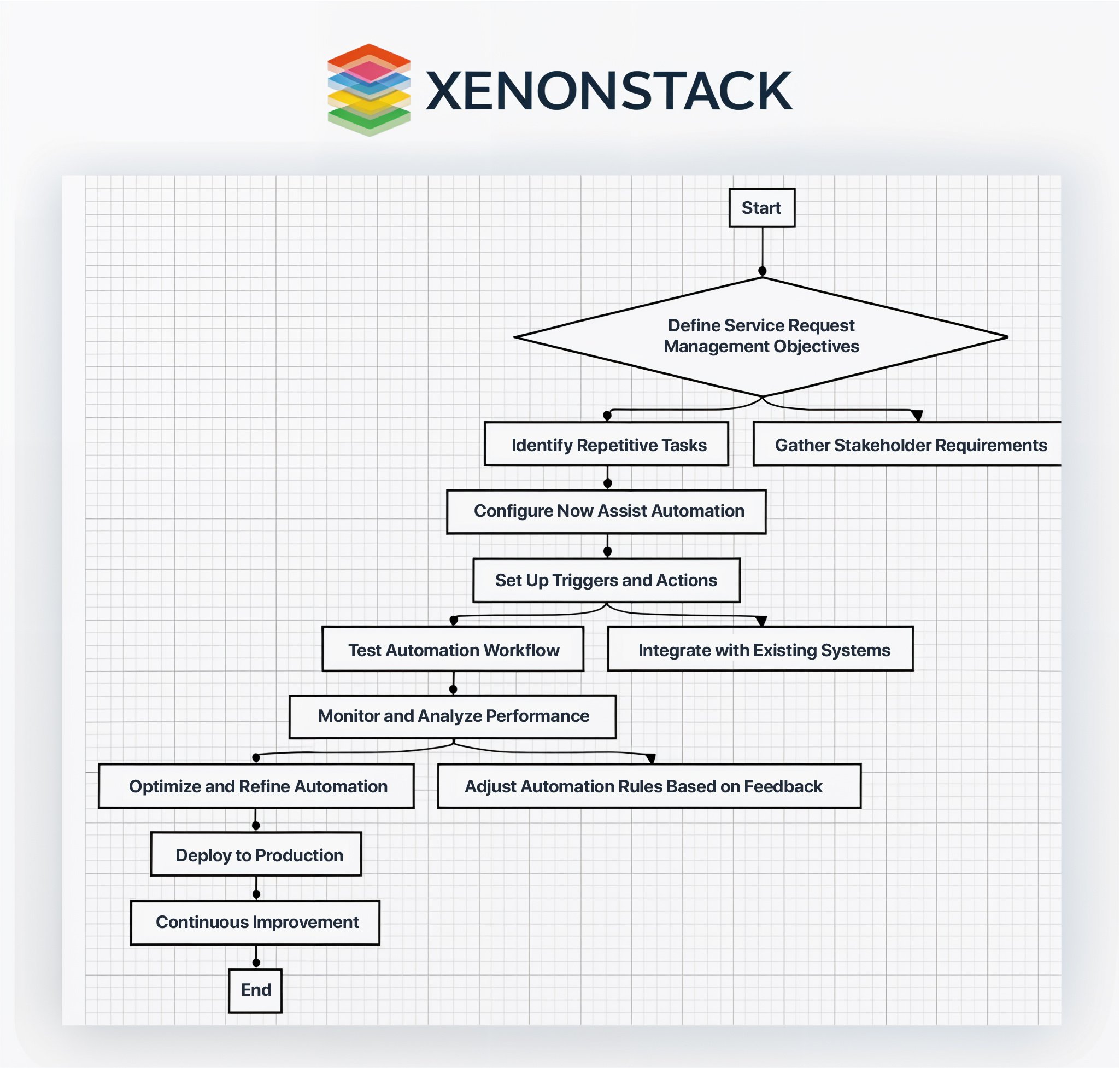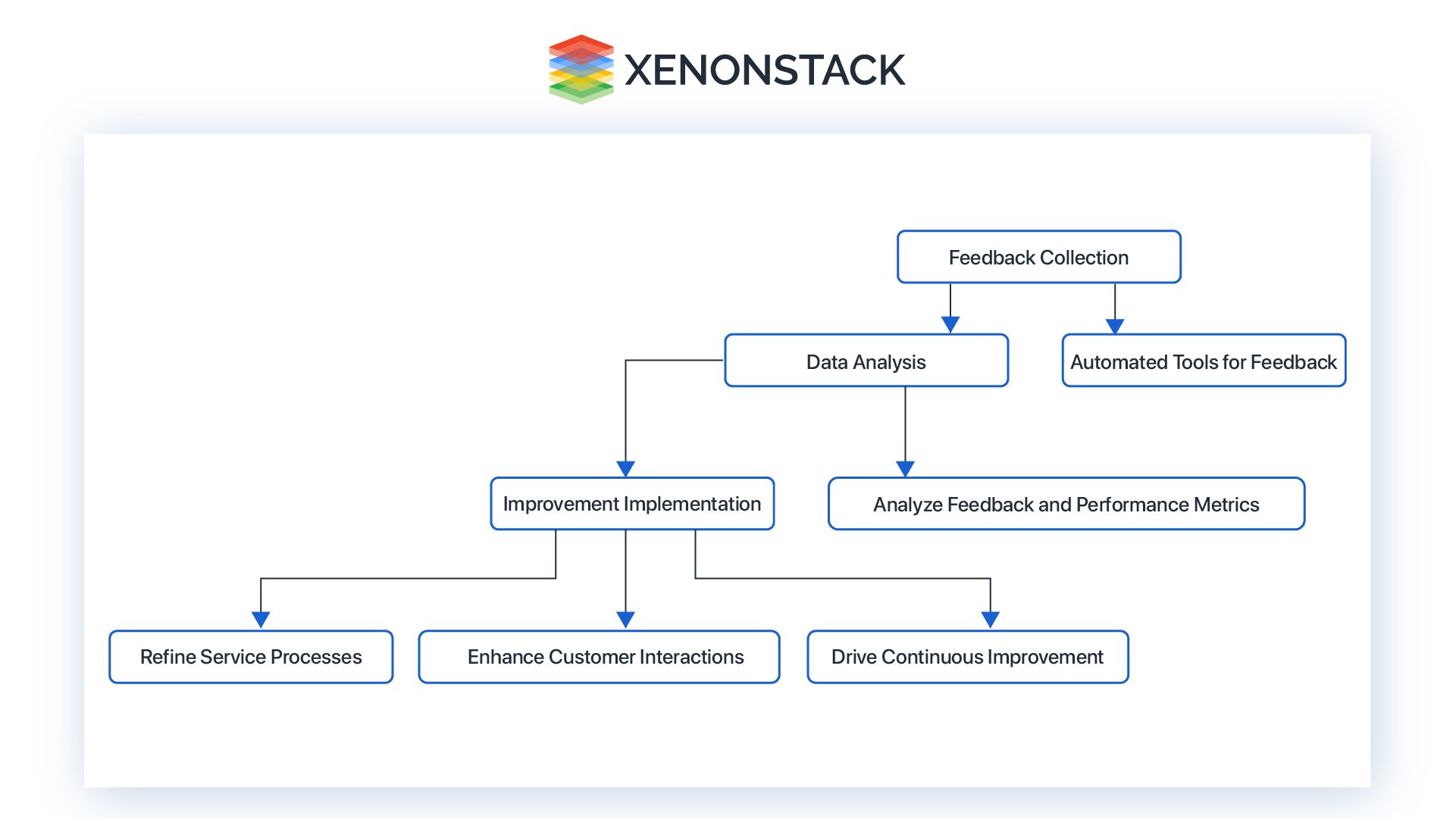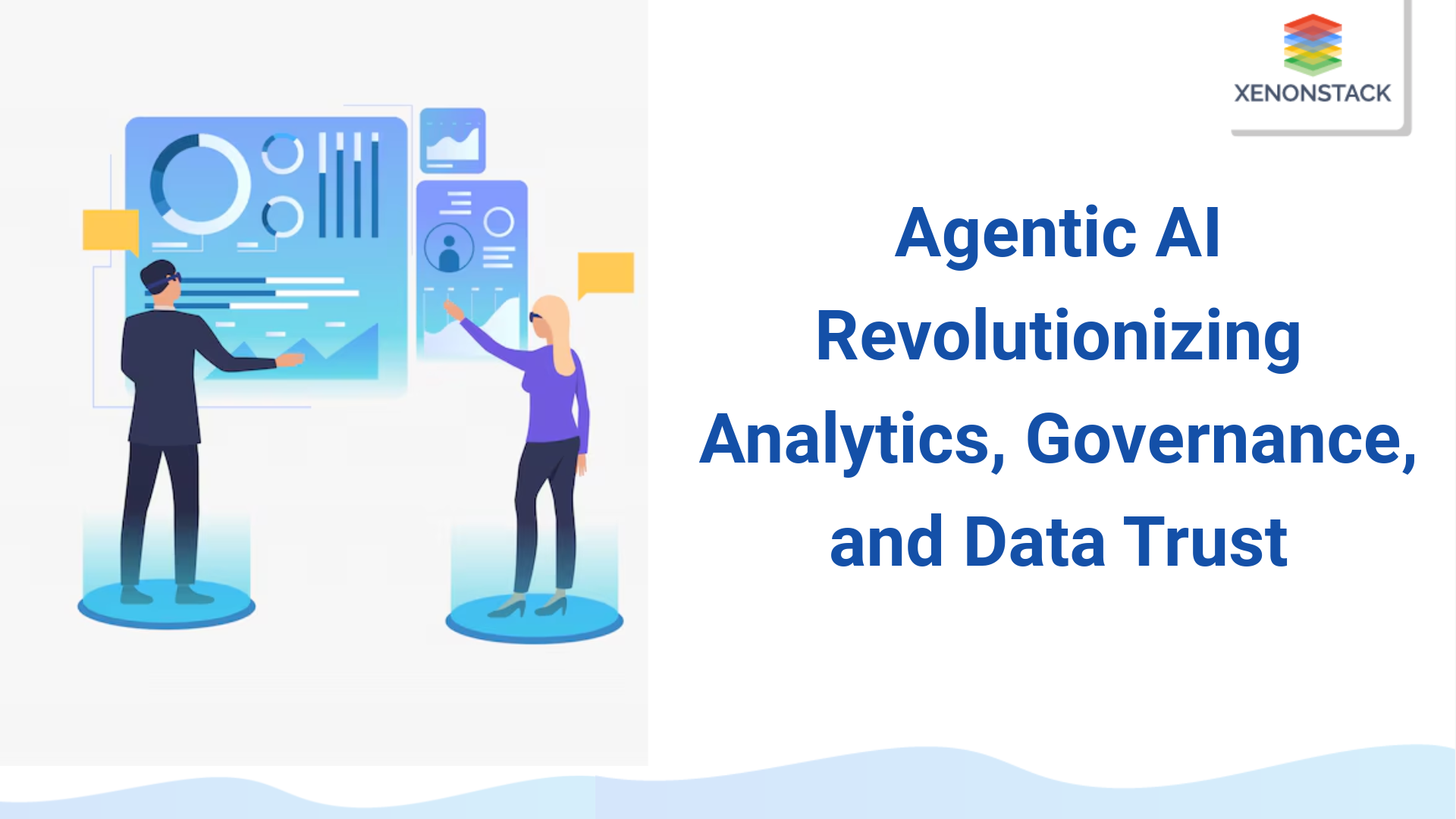ServiceNow AI Agents in Customer Service
In today's fast-paced customer service environment, organizations are under increasing pressure to improve productivity without sacrificing the customer experience. Now Assist for Customer Service Management is an advanced solution from ServiceNow designed to meet these demands using the power of Generative AI. Now Assist for CSM brings sophisticated AI capabilities into the customer service framework and, in doing so, makes a huge difference to efficiency and effectiveness by changing the way organizations approach customer engagement.
A recent report has showcased the economic impact of generative AI on customer service operations. In a study conducted at a company with 5,000 customer service representatives, generative AI showed an increase of 14% in the number of issues resolved per hour and reduced by 9% the time spent on handling each issue. These metrics underscore the transformative potential of Now Assist for CSM regarding agent productivity and customer satisfaction. Customer service departments often take a hit with large volumes of inquiries that require detailed attention and resolution.
Traditional ways of managing such inquiries can be time-consuming and prone to human error, thus ultimately delaying the resolution of issues and affecting optimal customer experiences. Now Assist for CSM resolves these challenges through automation of repetitive tasks, provision of intelligent insights, and workflow streamlining. Sure Now Assist for Customer Service Management is a strong application bringing generative AI to life in both better customer experiences and productivity for support agents. How it works:

Fig 1.1 Now Assist user flow
The image represents a workflow for a customer/agent support system. It starts with a customer/agent making a request through the "Now Assist Panel". This request is then summarised and used to generate a summary/answer. The agent/customer then accesses the knowledge base to provide information relevant to the customer. The resolution notes are updated and saved with feedback. Finally, the admin console can be used to monitor and configure the system. This flow suggests a process of gathering information, providing a response, and then documenting the resolution.
Now Assist helps to improve customer service interactions. Here's a breakdown:
- User Interaction: A user interacts with the "Now Assist" system, which could be through a website, app, or chatbot.
- System Understanding: The system utilizes AI to understand the user's request, gather necessary information, and generate a response.
- Response Delivery: The system provides a response to the user, either in the form of a direct answer, a helpful automated task, or a combination of both.
- Positive Impact: This process leads to improvements in areas like deflection (reducing the need for human agents), productivity, and overall process efficiency.
Managing Service Requests with ServiceNow Autonomous Agents
In recent years, automation has become a cornerstone of efficient service request management. According to a 2023 study by Deloitte, 56% of companies have adopted automation in their customer service processes, leading to a 30% reduction in response times and a 25% increase in customer satisfaction.
Service Request Management involves managing and fulfilling service requests from users, such as requests for information, access to services, or hardware/software changes. The primary goals are to ensure timely fulfillment, maintain high service quality, and improve user satisfaction.
Key Challenges
-
Manual and repetitive tasks
-
Delays in request processing
-
Inconsistent handling of requests
-
High administrative overhead
Steps to Automate Customer Service Processes with ServiceNow Agentic AI
 Fig 1.2 Automation workflow process diagram
Fig 1.2 Automation workflow process diagram
The flowchart describes the process for automating service request management. It starts by defining service request management objectives and identifying repetitive tasks. Then, it moves on to configuring the automation process and setting up triggers and actions.
Then, the workflow is tested and integrated with existing systems. The process is monitored and analyzed and the automation rules are adjusted based on feedback. Finally, the automation process is deployed to production and continuous improvement is implemented.
-
Automate Case Creation: Implement Now Assist to automatically generate cases from various customer interactions, such as emails, chats, and social media. This reduces manual entry and speeds up response times.
-
Streamline Case Routing: Use Now Assist to intelligently route cases to the appropriate teams based on predefined rules or AI-driven insights. This ensures cases are handled by the most suitable agents or departments.
-
Integrate with Service Catalogs: Automatically direct customer requests to the relevant service catalog forms or automated resolution paths, based on the nature of the request. This helps in quickly addressing and resolving service requests.
-
Enhance Communication Templates: Utilize automated templates for case communications to ensure consistency and efficiency in interactions with customers. This simplifies case progression and reduces manual effort.
Workflow
-
Customer Interaction: Customers initiate requests via various channels (email, chat, social media).
-
Automated Case Creation: Now Assist automatically generates cases from these requests.
-
Case Routing: Requests are intelligently routed to the appropriate teams or agents based on predefined rules or AI insights.
-
Communication: Automated templates facilitate consistent and efficient case updates and responses.
Omni-Channel Support with ServiceNow AI Agents
The Challenges
Providing seamless support across multiple channels is crucial yet challenging. Key issues include:
-
Fragmented Communication: Customers often switch channels, leading to disconnected interactions.
-
Inconsistent Experience: Repeating information across channels diminishes the customer experience.
-
Lack of Integration: Siloed systems impede effective management and timely responses.
-
Visibility Issues: Agents need a unified view to manage interactions effectively.
The ServiceNow Solution
ServiceNow Customer Service Management (CSM), powered by Now Assist, addresses these challenges with a unified omni-channel approach:
Centralized Management
-
Unified Workspace: Manage all interactions from a single interface, maintaining consistent communication history.
-
Integrated Channels: Supports SMS, social media, email, phone, and chat, allowing seamless transitions between channels.
Enhanced Visibility
-
Customer Central View: Provides a comprehensive view of all customer interactions and context.
-
Business Context Integration: Includes account details and business locations for better issue resolution.
Efficiency Improvements
-
Automated Routing: Cases are automatically directed to the appropriate teams, speeding up response times.
-
Performance Monitoring: Track key metrics and customer feedback to continuously improve service.
Workflow of the Solution
 Fig 1.3 Customer interaction management and resolution
Fig 1.3 Customer interaction management and resolution
The image is a flow chart for a customer interaction management system. It shows how a customer initiates contact, the various channels they can use, and the steps involved in managing the interaction. The system utilizes a unified workspace and centralized interaction management.
And the flow chart demonstrates the process from customer initiation to continuous improvement. It highlights the use of technology such as ServiceNow CSM, digital queue management, and automated routing.
-
Customer Initiates Contact: The process starts with a customer reaching out via various channels (SMS, social media, email, phone, chat).
-
Unified Workspace: The customer interaction is managed through a single platform, ServiceNow CSM, for a unified experience.
-
Centralized Interaction Management: All customer interactions are collected and centrally managed, creating a comprehensive customer view.
-
Case Management: Interactions are processed as cases with automated routing, assignment to appropriate teams, and resolution tracking.
-
Continuous Improvement: The entire process is monitored, and feedback is collected to continuously improve efficiency and effectiveness.
Enhancing Case Management Efficiency with ServiceNow Autonomous Agents
Effective case management is crucial for resolving customer issues quickly. Now Assist improves this process with customizable case forms, detailed account modeling, and automated tracking of service agreements. These features help gather accurate information, understand customer relationships, and meet service deadlines, making case handling more efficient and reliable.
Steps to Automate with Now Assist’s Tools

Fig1.4 Service request automation process Flow
This flowchart depicting the steps involved in implementing service request automation. It starts with defining the objectives for service request management. The next step is to identify repetitive tasks that can be automated and gather stakeholder requirements. Once those steps are completed, the process involves configuring the Now Assist automation, setting up triggers and actions, and testing the automation workflow. After testing the workflow, the next step is to monitor and analyze the automation's performance.
Based on this analysis, the process can be optimized and refined. Finally, the automation is deployed to production and continuous improvement is implemented. The flowchart also shows the integration of the automation with existing systems and adjustment of automation rules based on feedback.
-
Customize Case Forms: Use Now Assist to tailor case forms to collect only essential information, streamlining data entry and improving accuracy. Implement UI elements like picklists and selectors for consistent data collection.
-
Account and Service Organization Modeling: Model complex customer relationships, such as between accounts, consumers, and service organizations. This provides a 360-degree view of customer interactions and enhances case management by understanding context and relationships.
-
Implement Service Level Agreements (SLAs): Configure SLAs to track case resolution times and ensure compliance with customer expectations. Automated SLA tracking and notifications to prevent violations and maintain service quality.
-
Integrate Outsourced Services: Manage internal and outsourced customer service teams within a single platform. Use Now Assist to route cases, maintain data privacy, and ensure seamless collaboration between internal and external agents.
Workflow
-
Custom Case Forms: Agents use tailored case forms to collect and manage relevant information efficiently.
-
Account Modeling: Provides a comprehensive view of customer relationships and interactions, facilitating better case management and resolution.
-
SLA Enforcement: Monitors and tracks SLAs to ensure cases are resolved within the expected timeframes, with automated alerts for potential violations.
Leveraging Customer Feedback and Analytics through ServiceNow Agentic AI
Continuously improving service delivery relies on understanding customer feedback. Now Assist offers tools to collect and analyze feedback and performance data. By using these insights, organizations can spot trends, evaluate service quality, and make informed improvements, ensuring that service evolves to meet customer needs effectively.
Steps to Automate Customer Feedback and Delivery through Now Assist
-
Collect and Analyze Feedback: Use Now Assist to gather customer feedback from various channels. Implement automated tools to analyze feedback for insights into service performance and customer satisfaction.
-
Monitor Performance Metrics: Track key performance indicators (KPIs) and service metrics through Now Assist’s analytics tools. Use this data to identify trends, assess service quality, and make data-driven improvements.
-
Implement Continuous Improvement: Leverage insights from feedback and analytics to refine service processes and enhance customer experience. Apply automation to address recurring issues and optimize service delivery based on real-time data.
Workflow
Fig 1.5 Service Request Automation Process
-
Feedback Collection: Gathers feedback from multiple channels through automated tools.
-
Data Analysis: Analyzes feedback and performance metrics to generate insights into service quality and customer satisfaction.
-
Improvement Implementation: Uses insights to refine service processes, enhance customer interactions, and drive continuous improvement.
By integrating Now Assist into their operations, organizations can ensure a streamlined and efficient approach to Service Request Management, omnichannel support, case management, and continuous improvement. This holistic solution enhances both agent productivity and customer satisfaction, positioning businesses to deliver exceptional service in today’s dynamic market.
Key Features of Now Assist
Generative AI Search
-
Provides actionable answers from knowledge articles.
-
Accessible via Global Search, Service Portal, or Virtual Agent.
-
Enhances customer experience by delivering precise information quickly, reducing case volume.
Case Summarization
-
Automatically summarizes case activities and generates consistent resolution notes.
-
Allows agents to provide feedback for continuous improvement.
-
Reduces manual work and ensures relevant, accurate documentation.
Chat Summarization
-
Summarizes chat interactions at the start and end of each session.
-
Provides quick access to customer’s prior interactions.
-
Speeds up issue resolution by reducing time spent on reviewing histories.
Now Assist Panel
-
Conversational interface within the agent’s workspace.
-
Enables natural language queries for summaries, case updates, and insights.
-
Improves agent productivity and responsiveness by streamlining task management.
Now Assist Admin Console
-
Facilitates easy setup, configuration, and monitoring of Now Assist features.
-
Provides essential tools for administrators to manage and optimize the application.
Now Assist represents a sea change in customer service management, solving the comprehensive problems of improvement of efficiency and effectiveness. Through automation, service request management is automated, reducing manual effort while improving response times.The omni-channel support capabilities of the platform provide one view of the customer, ensuring seamless transitions between channels to improve overall customer satisfaction.
In the realm of case management, Now Assist offers customized forms and automated SLA tracking for improved productivity and quick resolution. Further, through its strong analytics and feedback tools,It enables an organization to make data-driven decisions, leading to improved service quality.All these factors combine to make Now Assist an extremely powerful tool for customer service operations transformation, attaining high levels of efficiency, and increasing customer satisfaction.



 Fig 1.3 Customer interaction management and resolution
Fig 1.3 Customer interaction management and resolution



